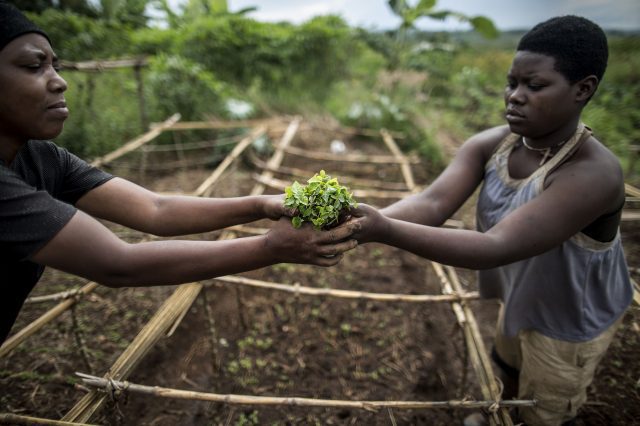Since 1970, the world has celebrated Earth Day, a day that focuses on green living and tackling the environmental crisis. Through Earth Day, humans have been made aware of the harm they cause to the environment. They have also been enlightened about how they can protect it; many human activities need to be regulated to mitigate the effects of climate change.
Key among them is agriculture, which generates roughly 18% of total greenhouse gas (GHG) emissions, second only to the energy sector.
Mitigation requires financing, however. There are global efforts to finance climate-smart agriculture but The Climate Policy Initiative reveals that current global climate finance flows are nowhere near the estimated $4.5 – $5 trillion needed annually. Additionally, of the $560 billion available for global climate finance, only 1.5% is provided for small-scale agriculture.
Furthermore, some regions are lagging others. According to a recently-launched ISF report, agri-SMEs in developing countries do not have sufficient funding and there’s a $106 billion financing gap in sub-Saharan Africa and Southeast Asia.
There are a few noteworthy climate-smart agriculture investors and ecosystem enablers in Africa working to improve access to financing for climate-smart agriculture including financiers and accelerators. Here are a few examples.

Climate-smart agriculture investors and ecosystem enablers
Sustainable Food Ventures (SFV)
SFV is a rolling fund that backs early-stage startups developing sustainable food products. Key in its portfolio of over 30 are startups whose products are plant-based, cell-based and recombinant. Among them are Nigeria’s plant-based foodtech startup, VeggieVictory as well as a cultivated meat startup from South Africa, Mzansi Meat.
Aceli Africa
Launched in 2020, Aceli Africa is a market incentive facility that seeks to mobilize $600 million in capital from the private sector to lend to East Africa’s SMEs. Its loans are incentivized to target SMEs that practice climate-smart agriculture and sustain the environment, as well as creating economic opportunities for women and youth and contributing to food security and nutrition in Africa.
The Acumen Resilient Agriculture Fund (ARAF)
The Acumen Resilient Agriculture Fund is a $58 million impact fund that makes equity investments in African early-stage agribusinesses. ARAF Fund primarily aims to build smallholder farmers’ climate resilience by funding agribusinesses that can help farmers identify weather events and bounce back from climate change effects.
The fund is backed by an array of institutions that promote sustainable development including PROPARCO, FMO, Green Climate Fund, the Soros Economic Development Fund, the Children’s Investment Fund Foundation, Global Social Impact, IKEA Foundation among others.
O-Farms Accelerator
O-Farms is an Africa-focused SME accelerator that’s backed by Village Capital and Bopinc in partnership with IKEA Foundation. It was founded in 2021 with the mandate to support circular agribusiness. When practiced on a large scale, circular agribusiness has been proven to reduce the number of external inputs needed in farming and the overall ecological footprint of agriculture.
While O-Farms is focusing on Uganda, Kenya and Ethiopia for its first cohort, it plans to work with 40 startups across East Africa by 2023
SEED Accelerator
Seed accelerator is one of the prominent emerging market accelerators supporting startups for sustainable development and a green economy. Seed was founded in 2002 at the World Summit on Sustainable Development in Johannesburg by UN Environment, UNDP and IUCN.
It works directly with entrepreneurs to optimize eco-inclusive entrepreneurship with African hubs in Malawi, Uganda, Botswana, South Africa, Ghana and Zambia.









